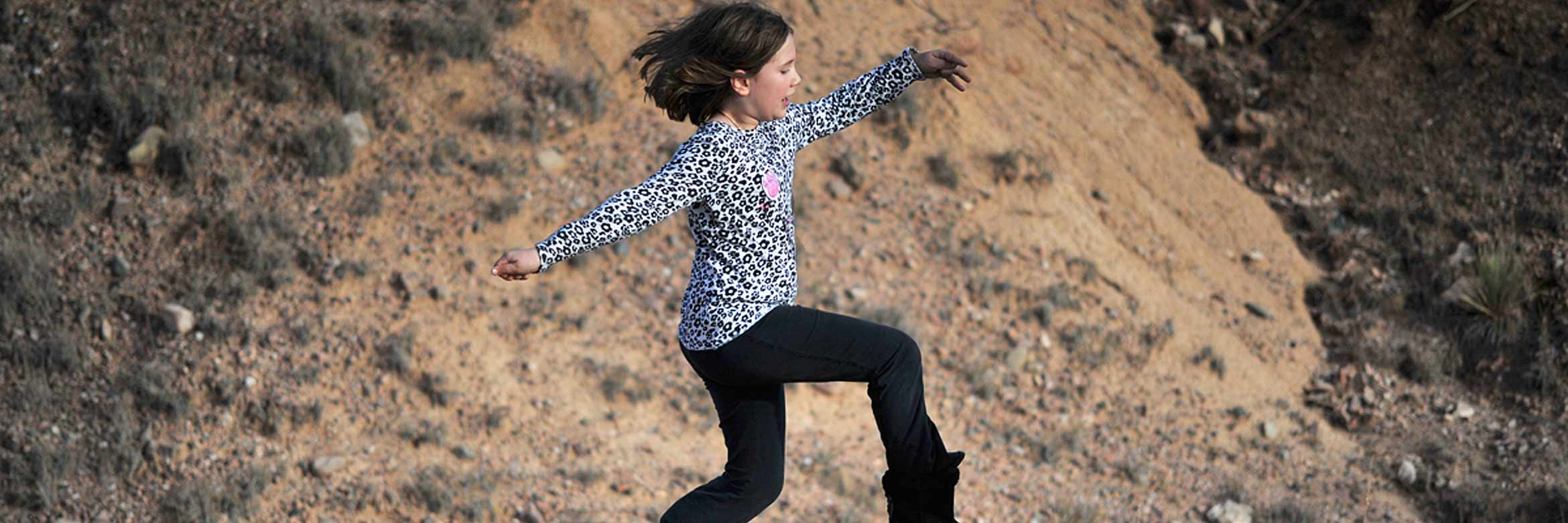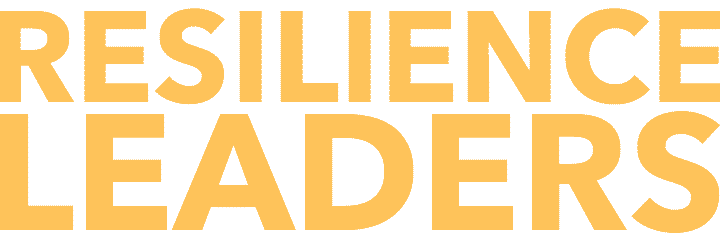Resilience Leaders Course
PREVENTING ADVERSE CHILDHOOD EXPERIENCES
The Resilience Leaders course promotes a collaborative and data-driven strategy for preventing adverse childhood experiences (ACEs), trauma, injury, substance misuse and maltreatment.
The course focuses on strategies to create a new enhanced version of city hall, child welfare and a school system focused on preventing childhood trauma—creating Family-Friendly City-Version 2.0. It’s groundbreaking work that requires the engagement of all of us in the public and private sectors.
The course supports projects that strengthen agency systems and family-centered services to create community environments where children and parents thrive.
Five web-based lessons promote the use of collaboration, data and technology to reshape how we think, work, and enrich our communities—guiding course participants through the development of local innovations focused on increasing family safety, health and resilience.

Make an investment in time that delivers real-world results
We're providing the skill-building, resources, and support to strengthen problem-solving abilities. We focus on data mining, analysis, research, facilitation, collaboration, brainstorming and use of technology.
Resilience Leaders supports local government in establishing a Department of Family and Community Resilience, as vital a service as the Fire Dept. and Police Dept., to ensure all local family services meet the needs of our most vulnerable children and parents.
Our Vision
We’re building a network of stakeholders skilled in data-informed decision-making, working together, sharing strategies and achieving measurable and meaningful progress as we work to design communities and cities that are family-friendly.
Our Resilience Leaders course is based on decades of research in childhood adversity, the social determinants of health, collective impact, continuous quality improvement and state-of-the-art technology. Our course supports leaders from the community, government, non-profit agencies, foundations, technology firms and businesses who believe our children's safety and success are our number 1 priority.

Strengthen your agency's and community's capacity to solve challenges
We guide participants, step-by-step, through the process of creating an innovative course project designed to solve challenges.
Resilience Leaders is centered around a five-lesson course.
ENGAGE: This introductory lesson introduces participants to the magnitude of the challenge, the components of the Resilience Leaders program, and the frameworks and concepts guiding the citywide initiative: the social determinants of health, collective impact and the data-driven process of continuous quality improvement.
ASSESSMENT: In this first phase, we use data to identify the challenges facing children, youth and families—focused on your particular experiment area. We then assess the current capacity of programs and services to address the challenges.
- Identify the challenges to be addressed
-
Use data to better understand the problems and solutions.
-
Use data to determine priorities.
-
Use data to drill down to root causes of the challenges.
PLANNING: In this second phase, we research evidence-based solutions to the problems you seek to solve. We also focus on how to develop partnerships, effective communication and countywide collaboration.
- Research evidence-informed solutions to the challenges.
-
Identify a timeline, roles and responsibilities, costs and other elements related to the overall implementation of the problem-solving process.
-
Develop a hypothesis and logic model that outlines the theory of change and how progress will be measured.
-
Articulate a plan consistent with the logic model.
ACTION: In this third phase, we follow the plan to implement strategies shown to reduce and treat problems. This process requires short and long term work, using data to monitor progress.
- Secure buy-in from key stakeholders and those who may be impacted by the process of problem-solving.
-
Begin implementation of solutions.
-
Monitor activity in the plan and make adjustments as needed.
-
Ensure data are collected throughout the action phase.
EVALUATION: In this fourth phase, we use data to measure the effectiveness of our actions, how agencies are being supported and how our children, youth and families are being served.
- Analyze all relevant data gathered during the action phase.
-
Identity the strengths and weaknesses of the problem-solving process.
-
Assess the impact of the problem-solving process on the challenge.
-
Communicate the results of the problem-solving process with all stakeholders.
Course participants explore data, research, and technology throughout the four phases of continuous quality improvement.
Our Priority Course Project Areas
Our innovation areas focus on urgent long-standing challenges. We look at both prevention and treatment in the areas of family health and safety that often intersect. Solutions may rely on both evidence-based solutions and innovations in technology.
Innovations will focus on priority areas identified by the leadership of the participant’s agency. Innovations may also focus on the following areas, with approval of instructors and leadership from the participant’s agency.
One of the most challenging and complex projects an agency can work on is the prevention of ACEs. Using a data-driven approach can yield very positive, measurable and meaningful results. One course project is to assess and build the capacity of one's agency to prevent childhood trauma. This course project focuses on understanding the many components of ACEs prevention and helps a team (and their agency) choose a priority area to focus on. This project also helps an agency identify potential funding and strategic partners to support prevention efforts.
Assess the capacity of local behavioral health providers to meet the mental health challenges of community members—especially those with limited incomes. Work to grow capacity.
Assess the incidence of Adverse Childhood Experiences among youth and adult populations, and work to provide evidence-based prevention and treatment.
Assess the capacity of vital family services to meet local needs—prioritizing communities with the lowest household incomes. These services/programs/sectors include:
-
Behavioral health care (school and community-based)
-
Housing/Shelters
-
Health care (Medical and Dental)
-
Transportation
-
Food pantries and programs
-
Early childhood programs
-
Youth mentorship program
-
High functioning schools
-
Parent supports including home visiting programs
-
Job training and placement programs
Assess who are most at risk for challenges related to substance misuse, incidence of substance abuse and related injuries and develop strategies to address those challenges
Assess the incidence of substance use challenges among students, the capacity of local schools to address student substance misuse and abuse, and develop strategies to strengthen school-based prevention and treatment services
Assess the incidence of DV and the capacity of local providers to meet the needs of adult survivors of DV and strengthen prevention and treatment services.
Assess the incidence of DV and assess the capacity of local providers to meet the needs of child witnesses of DV and strengthen prevention and treatment services.
Assess the incidence of DV and assess the capacity of the local community to address the behaviors of DV offenders and strengthen prevention, intervention and treatment services.
Assess the needs of parents who may be at risk for entering the Protective Services system, or are currently in the system, and develop strategies to meet those needs.
Assess the needs of youth who may age out of the Protective Services system and develop strategies to meet those needs.
Assess the local need for foster and adoptive parents and develop recruitment strategies.
Assess the needs of youth who may be at risk for entering the Juvenile Justice system, or are currently in the system and develop strategies to meet those needs.
Assess the needs of the parents of youth who are currently in the Juvenile Justice system and develop strategies to meet those needs.
We also will support special projects focused on areas of importance to specific communities—including strategies that empower residents from birth to school to career.
Our objective is supporting course participants in initiating collaborative and data-driven projects.
Upon completing the course, your understanding of the following concepts will be strengthened:
-
How to initiate a local innovation, incorporate community and agency feedback and overcome barriers
-
Where to access local data sources
-
How to harness the power of data analysis
-
How to access research and rate evidence-based prevention and treatment strategies
-
How to create a hypothesis, test assumptions and design a logic model to guide a community innovation
-
How to identify the impact of safety and health challenges on children, youth, families and communities
-
How to move through the key phases of Continuous Quality Improvement: assessment, planning, action and evaluation
-
How to access technical assistance to support a community innovation from beginning to end
-
How to research evidence-based solutions to safety and health problems with a focus on preventing and treating ACEs, maltreatment and trauma
-
How innovations in technology can support solutions to local safety and health challenges

Enjoy personalized instruction, group synergy, coaching and online support
Face-to-face instruction plus large and small group discussions provide opportunities to learn, reflect, share, debate, brainstorm and dialogue. The activities promote empowerment, nurture creativity, strengthen critical thinking, and link participants to data, research and innovative technology solutions.
Participants receive coaching in the face-to face session and through online communication focused on identifying local problems and building skills needed to initiate and strengthen continuous quality improvement. Personalized coaching provides technical assistance in data analysis, research, software, technology, capacity-building, group facilitation and communication.
The website provides participants with lessons, links to data, access to research, and all the tools needed to support a local collaborative, data-driven and results-oriented process.
Participants focus on a local challenge to solve with on-going support from the instructors. Participants are given the tools to share all aspects of the program, including the development of the local innovation, with their local office.
About the Design of Resilience Leaders
The design of the Resilience Leaders program is informed by the Data Leaders for Child Welfare—a nine-month training program on continuous quality improvement for managers within child welfare currently implemented in New York City, Connecticut and New Mexico. To learn more about the evaluation of the NM Data Leaders program by the Butler Institute for Families at the University of Denver please contact us. www.safetyandsuccess.com
The Resilience Leaders Learning Management System
The web-based learning management system's design is also informed by the Data Leaders program. It provides unique features to strengthen all aspects of continuous quality improvement (CQI) including: project/innovation management, assessment, planning, data-informed action, evaluation, policy and program research.
The website allows you to learn in the local office or at home. It supports the blended learning approach, combining web-based instruction and classroom experiences. We've found that the web-based instruction is ideal for those with different learning styles and levels of interest.
- Lessons on key topic areas
- Tutorials to reinforce topics
- Links to data and research
- Guide to data mining and analysis
- Guide to policy and program research
- Guide to project management
- Training materials for local office staff
- Comments and feedback features
- Post-lesson surveys

The power of technology
Many of the challenges facing children, families, communities and organizations will be solved, in part, with the right use of technology--our mobiles, laptops, websites, apps, software, learning management systems and artificial intelligence. Technology holds great promise, increasing communication across agencies, sectors and communities; tracking client use of services within an agency or a collection of agencies; and documenting which services achieve the best outcomes for children and families.
Technology can make the vision, goals and activities of Resilience Leaders completely accessible to all agency participants and community members--providing pathways into the collaborative process. In the Resilience Leaders course, we explore the promise of technology to strengthen course innovations and agency initiatives.

Find the support you need to engage, motivate and inspire your team, agency and community
We are the team that developed the Striving Toward Excellent Practice—Data Leaders Program for Child Welfare, implemented in New York City, Connecticut, New Mexico—and, most importantly, a model for solving challenges that's applicable to any government sector or non-profit structure. We supported the development and publishing of the groundbreaking book, Anna, Age Eight: The data-driven prevention of childhood trauma and maltreatment.
Course instructors and coaches provide on-going guidance throughout the face-to-face and online elements of the course. After the face-to-face classroom session, faculty are available through skype, facetime and email.
Faculty have decades of experience in capacity-building, organizational development, data analysis, communication and information technology—and are committed to supporting your success. The teaching and coaching team work together as a think tank, sharing course participant's plans and offering advice, insights, direction and support.
 Dominic Cappello is the co-founder of Safety+Success Communities, a non-profit strategic planning collective in Santa Fe, New Mexico. A specialist in continuous quality improvement, Dominic advocates for a collaborative and data-driven problem-solving process. He has a Master of Arts in Liberal Studies with an emphasis in Language and Communications from Regis University. He oversaw the development and implementation of the Casey Family Programs-sponsored Data Leaders for Child Welfare programs in New York City, New Mexico and Connecticut. Dominic worked for the NM Department of Health's Epidemiology and Division, developing the Resiliency Corps focused on improving health outcomes for youth, and the NM Children, Youth and Families Department’s Research, Assessment and Data Bureau. He also has extensive expertise in reaching families through his development of the CDC-funded and National Education Association sponsored “Can We Talk? /Conversamos?” parent education project. Dominic’s work reached a national audience when he appeared on The Oprah Winfrey Show to discuss his Ten Talks book series on family communication and health. He is also the co-author (with Katherine Ortega Courtney, PhD) of Anna, Age Eight: The data-driven prevention of childhood trauma and maltreatment. Dominic is overseeing the development of Resilience Leaders in New Mexico and can be contacted at Dom@safetyandsuccess.org.
Dominic Cappello is the co-founder of Safety+Success Communities, a non-profit strategic planning collective in Santa Fe, New Mexico. A specialist in continuous quality improvement, Dominic advocates for a collaborative and data-driven problem-solving process. He has a Master of Arts in Liberal Studies with an emphasis in Language and Communications from Regis University. He oversaw the development and implementation of the Casey Family Programs-sponsored Data Leaders for Child Welfare programs in New York City, New Mexico and Connecticut. Dominic worked for the NM Department of Health's Epidemiology and Division, developing the Resiliency Corps focused on improving health outcomes for youth, and the NM Children, Youth and Families Department’s Research, Assessment and Data Bureau. He also has extensive expertise in reaching families through his development of the CDC-funded and National Education Association sponsored “Can We Talk? /Conversamos?” parent education project. Dominic’s work reached a national audience when he appeared on The Oprah Winfrey Show to discuss his Ten Talks book series on family communication and health. He is also the co-author (with Katherine Ortega Courtney, PhD) of Anna, Age Eight: The data-driven prevention of childhood trauma and maltreatment. Dominic is overseeing the development of Resilience Leaders in New Mexico and can be contacted at Dom@safetyandsuccess.org.
 Shannon Morrison, Ph.D.is a sociologist with over 25 years of program planning, evaluation, and research experience in the areas of human services, homelessness, violence against women, organizational development, and criminal justice. She taught undergraduate courses in sociology and research methodology for four years at the University of New Mexico. She has been the Principal Investigator for several federal grants and has been a speaker at many National conferences. She has extensive experience in conducting strength-based program evaluation, quantitative and qualitative data collection and analysis, writing grant proposals and research reports and working with culturally diverse populations. Since 1994, she has worked with several community and state-level programs in New Mexico, utilizing a participatory approach and providing meaningful, client-driven program planning and evaluation. She currently works with several community agencies across New Mexico conducting data collection, fidelity assessments, and interviews to determine current practices and assist in implementing best practices and conducting on-going program evaluation. She has developed and co-authored best practice manuals for the NM Behavioral Health Services Division, NM Children, Youth, and Family Department, and the Administrative Office of the Courts. Because of her participatory approach to program evaluation, she can engage stakeholders and clients in a way that allows for rich sharing and discussion which, in turn, provides meaningful evaluation results.
Shannon Morrison, Ph.D.is a sociologist with over 25 years of program planning, evaluation, and research experience in the areas of human services, homelessness, violence against women, organizational development, and criminal justice. She taught undergraduate courses in sociology and research methodology for four years at the University of New Mexico. She has been the Principal Investigator for several federal grants and has been a speaker at many National conferences. She has extensive experience in conducting strength-based program evaluation, quantitative and qualitative data collection and analysis, writing grant proposals and research reports and working with culturally diverse populations. Since 1994, she has worked with several community and state-level programs in New Mexico, utilizing a participatory approach and providing meaningful, client-driven program planning and evaluation. She currently works with several community agencies across New Mexico conducting data collection, fidelity assessments, and interviews to determine current practices and assist in implementing best practices and conducting on-going program evaluation. She has developed and co-authored best practice manuals for the NM Behavioral Health Services Division, NM Children, Youth, and Family Department, and the Administrative Office of the Courts. Because of her participatory approach to program evaluation, she can engage stakeholders and clients in a way that allows for rich sharing and discussion which, in turn, provides meaningful evaluation results.
 Richard Dunks is the founder of Datapolitan, an urban informatics consultancy that focuses on the data and information needs of the public sector, including government agencies and non-profits. A graduate of the urban data science program at NYU's Center for Urban Science and Progress, Richard works on applying new and innovative techniques to the processing, analysis, and visualization of public data to make meaningful and positive actions with measurable impact. With over 6 years of experience as a data analyst in the public sector, Richard brings a variety of skills to the task of making sense of data. Through past work with the Center for Government Excellence at Johns Hopkins University, he helped develop innovative methods of data analysis and visualization to medium-sized cities across the country. He currently teaches a series of informative and engaging classes in open data and geospatial analysis for the City of New York, and has taught courses in data mining, spatial analysis, information visualization, and informatics at Columbia University, Fordham University, and Pratt Institute. He is a facilitator of the Data Leaders for Child Welfare program in New York City.
Richard Dunks is the founder of Datapolitan, an urban informatics consultancy that focuses on the data and information needs of the public sector, including government agencies and non-profits. A graduate of the urban data science program at NYU's Center for Urban Science and Progress, Richard works on applying new and innovative techniques to the processing, analysis, and visualization of public data to make meaningful and positive actions with measurable impact. With over 6 years of experience as a data analyst in the public sector, Richard brings a variety of skills to the task of making sense of data. Through past work with the Center for Government Excellence at Johns Hopkins University, he helped develop innovative methods of data analysis and visualization to medium-sized cities across the country. He currently teaches a series of informative and engaging classes in open data and geospatial analysis for the City of New York, and has taught courses in data mining, spatial analysis, information visualization, and informatics at Columbia University, Fordham University, and Pratt Institute. He is a facilitator of the Data Leaders for Child Welfare program in New York City.
 Melissa Hardin is a Licensed Clinical Social Worker in New Mexico with a MSW from New Mexico Highlands University. She practiced in child welfare, before entering into academia to begin a career in higher education at Eastern New Mexico University. Her focus of work has been on interventions for children and families. Ms. Hardin worked with the New Mexico Children, Youth and Families Department for 13 years, beginning her career in direct client service and ending in management before her transition into teaching. She has taught for the ENMU Social Work Program for 9 years and counting. Her passion is in work with children and families, interventions, and social change to meet the needs of this population. Ms. Hardin most recently accepted the position of ENMU Social Work Program Director, and is excited about the direction her work is taking her including developing university and community strategies for preventing Adverse Childhood Experiences (ACEs) including the design and piloting of “Data-Driven Social Work” courses and the data-driven and cross-sector ACEs prevention project Resilience Leaders. Ms. Hardin is the liaison between the Resilience Leaders program and our partner Eastern New Mexico University-Program of Social Work.
Melissa Hardin is a Licensed Clinical Social Worker in New Mexico with a MSW from New Mexico Highlands University. She practiced in child welfare, before entering into academia to begin a career in higher education at Eastern New Mexico University. Her focus of work has been on interventions for children and families. Ms. Hardin worked with the New Mexico Children, Youth and Families Department for 13 years, beginning her career in direct client service and ending in management before her transition into teaching. She has taught for the ENMU Social Work Program for 9 years and counting. Her passion is in work with children and families, interventions, and social change to meet the needs of this population. Ms. Hardin most recently accepted the position of ENMU Social Work Program Director, and is excited about the direction her work is taking her including developing university and community strategies for preventing Adverse Childhood Experiences (ACEs) including the design and piloting of “Data-Driven Social Work” courses and the data-driven and cross-sector ACEs prevention project Resilience Leaders. Ms. Hardin is the liaison between the Resilience Leaders program and our partner Eastern New Mexico University-Program of Social Work.
 Gregory Sherrow is a technology architect for both educational and commercial enterprises. Gregory was the technology architect of the Data Leaders for Child Welfare program and course series. This website serves as a repository for lessons, tutorials and links to data and research. He provided Data Leaders technology solutions for the sites for the child welfare systems of New York City and Connecticut. Trained as an educator, Gregory has been involved in online technology development and management since 1997 and has developed and managed web technology solutions for companies large and small, most notably 6+ years as the head of Patagonia, Inc. Web Development Department and more than a dozen years as a technology and services executive for an online publishing solution. Gregory architected the prototypes for the Safety+Success learning management systems piloted in South Carolina and New Mexico that housed courses for parents on family health and safety. His learning management system clients include State Departments of Health, Education and Attorney Generals Office and he is currently developing a learning management system to house a course focused on the prevention and treatment of adverse childhood experiences, based on the book Anna, Age Eight: The data-driven prevention of childhood trauma and maltreatment.
Gregory Sherrow is a technology architect for both educational and commercial enterprises. Gregory was the technology architect of the Data Leaders for Child Welfare program and course series. This website serves as a repository for lessons, tutorials and links to data and research. He provided Data Leaders technology solutions for the sites for the child welfare systems of New York City and Connecticut. Trained as an educator, Gregory has been involved in online technology development and management since 1997 and has developed and managed web technology solutions for companies large and small, most notably 6+ years as the head of Patagonia, Inc. Web Development Department and more than a dozen years as a technology and services executive for an online publishing solution. Gregory architected the prototypes for the Safety+Success learning management systems piloted in South Carolina and New Mexico that housed courses for parents on family health and safety. His learning management system clients include State Departments of Health, Education and Attorney Generals Office and he is currently developing a learning management system to house a course focused on the prevention and treatment of adverse childhood experiences, based on the book Anna, Age Eight: The data-driven prevention of childhood trauma and maltreatment.

Create innovations to benefit the lives of families in measurable and meaningful ways
The course is designed for those in leadership roles—stakeholders who are interested in collaboration, data, research, evidence-based practice and technology. We seek self-directed participants—those who are motivated to learn, share, challenge assumptions and support positive change.
THE POWER OF TEAMWORK
As a change agent and leader, creating and having support for new initiatives and innovations is vital—and challenging.
Teamwork is a vital component of our process to maximize your agency's impact. Course participants gain knowledge and capacity to apply continuous quality improvement and key course concepts by working in teams. We strongly recommend enrolling in the course with a colleague to serve as a co-pilot for mutual support through the classroom experience, project design work, and for driving the short and long-term change process.
PREREQUISITES FOR THE PROGRAM
A sponsoring agency or multi-agency collaborative will need:
- Leaders with a common agenda and priorities
- Consistent plan for using data and measuring progress
-
Mutually reinforcing activities to support local innovations
-
Continuous communication for all stakeholders and community members
-
A strong backbone organization with the capacity to support all innovations
PREREQUISITES FOR COURSE
Participants will need:
- A mobile/laptop/tablet with internet access for the classroom session
- Two days committed to classroom + coaching
- A minimum of one hour per web-based lesson for self-directed learning. The course includes five easy-to-navigate lessons: Engage, Assess, Plan, Act and Evaluate.
- Capacity to present key course concepts to agency staff and community members
- A commitment to implementing a course project–a local innovation (with on-going technical assistance from the course instructor)
- A passion for problem-solving and achieving results
Course Reading
Course participants are provided with the book Anna, Age Eight: The data-driven prevention of childhood trauma and maltreatment by Katherine Ortega Courtney, PhD and Dominic Cappello. The book explores the root causes of childhood adversity and the conditions of the communities where families live, known as the social determinants of health and a predictor of health and safety. The authors' hypothesis is that by creating resilient and well-resourced communities, we strengthen the resiliency of children and families. The book also contains the Resilient Community Experience Survey that can be used to assess how accessible vital services are to children and families. The survey results can identify gaps and help prioritize focus areas and local Resilience Leaders projects. www.AnnaAgeEight.org
Next Steps
Contact us for information about the course schedule, locations, fees, and scholarships. We look forward to supporting you, your teammate and your agency’s participation.








 Dominic Cappello is the co-founder of Safety+Success Communities, a non-profit strategic planning collective in Santa Fe, New Mexico. A specialist in continuous quality improvement, Dominic advocates for a collaborative and data-driven problem-solving process. He has a Master of Arts in Liberal Studies with an emphasis in Language and Communications from Regis University. He oversaw the development and implementation of the Casey Family Programs-sponsored Data Leaders for Child Welfare programs in New York City, New Mexico and Connecticut. Dominic worked for the NM Department of Health's Epidemiology and Division, developing the Resiliency Corps focused on improving health outcomes for youth, and the NM Children, Youth and Families Department’s Research, Assessment and Data Bureau. He also has extensive expertise in reaching families through his development of the CDC-funded and National Education Association sponsored “Can We Talk? /Conversamos?” parent education project. Dominic’s work reached a national audience when he appeared on The Oprah Winfrey Show to discuss his Ten Talks book series on family communication and health. He is also the co-author (with Katherine Ortega Courtney, PhD) of Anna, Age Eight: The data-driven prevention of childhood trauma and maltreatment. Dominic is overseeing the development of Resilience Leaders in New Mexico and can be contacted at
Dominic Cappello is the co-founder of Safety+Success Communities, a non-profit strategic planning collective in Santa Fe, New Mexico. A specialist in continuous quality improvement, Dominic advocates for a collaborative and data-driven problem-solving process. He has a Master of Arts in Liberal Studies with an emphasis in Language and Communications from Regis University. He oversaw the development and implementation of the Casey Family Programs-sponsored Data Leaders for Child Welfare programs in New York City, New Mexico and Connecticut. Dominic worked for the NM Department of Health's Epidemiology and Division, developing the Resiliency Corps focused on improving health outcomes for youth, and the NM Children, Youth and Families Department’s Research, Assessment and Data Bureau. He also has extensive expertise in reaching families through his development of the CDC-funded and National Education Association sponsored “Can We Talk? /Conversamos?” parent education project. Dominic’s work reached a national audience when he appeared on The Oprah Winfrey Show to discuss his Ten Talks book series on family communication and health. He is also the co-author (with Katherine Ortega Courtney, PhD) of Anna, Age Eight: The data-driven prevention of childhood trauma and maltreatment. Dominic is overseeing the development of Resilience Leaders in New Mexico and can be contacted at  Shannon Morrison, Ph.D.is a sociologist with over 25 years of program planning, evaluation, and research experience in the areas of human services, homelessness, violence against women, organizational development, and criminal justice. She taught undergraduate courses in sociology and research methodology for four years at the University of New Mexico. She has been the Principal Investigator for several federal grants and has been a speaker at many National conferences. She has extensive experience in conducting strength-based program evaluation, quantitative and qualitative data collection and analysis, writing grant proposals and research reports and working with culturally diverse populations. Since 1994, she has worked with several community and state-level programs in New Mexico, utilizing a participatory approach and providing meaningful, client-driven program planning and evaluation. She currently works with several community agencies across New Mexico conducting data collection, fidelity assessments, and interviews to determine current practices and assist in implementing best practices and conducting on-going program evaluation. She has developed and co-authored best practice manuals for the NM Behavioral Health Services Division, NM Children, Youth, and Family Department, and the Administrative Office of the Courts. Because of her participatory approach to program evaluation, she can engage stakeholders and clients in a way that allows for rich sharing and discussion which, in turn, provides meaningful evaluation results.
Shannon Morrison, Ph.D.is a sociologist with over 25 years of program planning, evaluation, and research experience in the areas of human services, homelessness, violence against women, organizational development, and criminal justice. She taught undergraduate courses in sociology and research methodology for four years at the University of New Mexico. She has been the Principal Investigator for several federal grants and has been a speaker at many National conferences. She has extensive experience in conducting strength-based program evaluation, quantitative and qualitative data collection and analysis, writing grant proposals and research reports and working with culturally diverse populations. Since 1994, she has worked with several community and state-level programs in New Mexico, utilizing a participatory approach and providing meaningful, client-driven program planning and evaluation. She currently works with several community agencies across New Mexico conducting data collection, fidelity assessments, and interviews to determine current practices and assist in implementing best practices and conducting on-going program evaluation. She has developed and co-authored best practice manuals for the NM Behavioral Health Services Division, NM Children, Youth, and Family Department, and the Administrative Office of the Courts. Because of her participatory approach to program evaluation, she can engage stakeholders and clients in a way that allows for rich sharing and discussion which, in turn, provides meaningful evaluation results. Richard Dunks is the founder of Datapolitan, an urban informatics consultancy that focuses on the data and information needs of the public sector, including government agencies and non-profits. A graduate of the urban data science program at NYU's Center for Urban Science and Progress, Richard works on applying new and innovative techniques to the processing, analysis, and visualization of public data to make meaningful and positive actions with measurable impact. With over 6 years of experience as a data analyst in the public sector, Richard brings a variety of skills to the task of making sense of data. Through past work with the Center for Government Excellence at Johns Hopkins University, he helped develop innovative methods of data analysis and visualization to medium-sized cities across the country. He currently teaches a series of informative and engaging classes in open data and geospatial analysis for the City of New York, and has taught courses in data mining, spatial analysis, information visualization, and informatics at Columbia University, Fordham University, and Pratt Institute. He is a facilitator of the Data Leaders for Child Welfare program in New York City.
Richard Dunks is the founder of Datapolitan, an urban informatics consultancy that focuses on the data and information needs of the public sector, including government agencies and non-profits. A graduate of the urban data science program at NYU's Center for Urban Science and Progress, Richard works on applying new and innovative techniques to the processing, analysis, and visualization of public data to make meaningful and positive actions with measurable impact. With over 6 years of experience as a data analyst in the public sector, Richard brings a variety of skills to the task of making sense of data. Through past work with the Center for Government Excellence at Johns Hopkins University, he helped develop innovative methods of data analysis and visualization to medium-sized cities across the country. He currently teaches a series of informative and engaging classes in open data and geospatial analysis for the City of New York, and has taught courses in data mining, spatial analysis, information visualization, and informatics at Columbia University, Fordham University, and Pratt Institute. He is a facilitator of the Data Leaders for Child Welfare program in New York City. Melissa Hardin is a Licensed Clinical Social Worker in New Mexico with a MSW from New Mexico Highlands University. She practiced in child welfare, before entering into academia to begin a career in higher education at Eastern New Mexico University. Her focus of work has been on interventions for children and families. Ms. Hardin worked with the New Mexico Children, Youth and Families Department for 13 years, beginning her career in direct client service and ending in management before her transition into teaching. She has taught for the ENMU Social Work Program for 9 years and counting. Her passion is in work with children and families, interventions, and social change to meet the needs of this population. Ms. Hardin most recently accepted the position of ENMU Social Work Program Director, and is excited about the direction her work is taking her including developing university and community strategies for preventing Adverse Childhood Experiences (ACEs) including the design and piloting of “Data-Driven Social Work” courses and the data-driven and cross-sector ACEs prevention project Resilience Leaders. Ms. Hardin is the liaison between the Resilience Leaders program and our partner Eastern New Mexico University-Program of Social Work.
Melissa Hardin is a Licensed Clinical Social Worker in New Mexico with a MSW from New Mexico Highlands University. She practiced in child welfare, before entering into academia to begin a career in higher education at Eastern New Mexico University. Her focus of work has been on interventions for children and families. Ms. Hardin worked with the New Mexico Children, Youth and Families Department for 13 years, beginning her career in direct client service and ending in management before her transition into teaching. She has taught for the ENMU Social Work Program for 9 years and counting. Her passion is in work with children and families, interventions, and social change to meet the needs of this population. Ms. Hardin most recently accepted the position of ENMU Social Work Program Director, and is excited about the direction her work is taking her including developing university and community strategies for preventing Adverse Childhood Experiences (ACEs) including the design and piloting of “Data-Driven Social Work” courses and the data-driven and cross-sector ACEs prevention project Resilience Leaders. Ms. Hardin is the liaison between the Resilience Leaders program and our partner Eastern New Mexico University-Program of Social Work. Gregory Sherrow is a technology architect for both educational and commercial enterprises. Gregory was the technology architect of the Data Leaders for Child Welfare program and course series. This website serves as a repository for lessons, tutorials and links to data and research. He provided Data Leaders technology solutions for the sites for the child welfare systems of New York City and Connecticut. Trained as an educator, Gregory has been involved in online technology development and management since 1997 and has developed and managed web technology solutions for companies large and small, most notably 6+ years as the head of Patagonia, Inc. Web Development Department and more than a dozen years as a technology and services executive for an online publishing solution. Gregory architected the prototypes for the Safety+Success learning management systems piloted in South Carolina and New Mexico that housed courses for parents on family health and safety. His learning management system clients include State Departments of Health, Education and Attorney Generals Office and he is currently developing a learning management system to house a course focused on the prevention and treatment of adverse childhood experiences, based on the book Anna, Age Eight: The data-driven prevention of childhood trauma and maltreatment.
Gregory Sherrow is a technology architect for both educational and commercial enterprises. Gregory was the technology architect of the Data Leaders for Child Welfare program and course series. This website serves as a repository for lessons, tutorials and links to data and research. He provided Data Leaders technology solutions for the sites for the child welfare systems of New York City and Connecticut. Trained as an educator, Gregory has been involved in online technology development and management since 1997 and has developed and managed web technology solutions for companies large and small, most notably 6+ years as the head of Patagonia, Inc. Web Development Department and more than a dozen years as a technology and services executive for an online publishing solution. Gregory architected the prototypes for the Safety+Success learning management systems piloted in South Carolina and New Mexico that housed courses for parents on family health and safety. His learning management system clients include State Departments of Health, Education and Attorney Generals Office and he is currently developing a learning management system to house a course focused on the prevention and treatment of adverse childhood experiences, based on the book Anna, Age Eight: The data-driven prevention of childhood trauma and maltreatment.